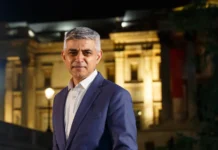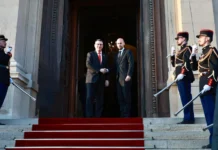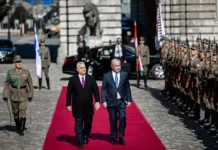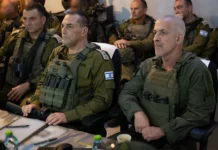Reports have circulated that Rep. Rashida Tlaib (D-Mich.) spoke at an art exhibit in Detroit held from May 26 to June 17, though the featured works didn’t represent any classic school or style.
Instead, a black-and-white drawing showed a teenage girl with a half-smile and the eliminationist protest chant “From the river to the sea” on top with “Palestine will be free” at the bottom. A photo showed a young woman in a black hijab holding a glue gun like a weapon as she stood in front of a red-gray-and-black stylized image of someone holding a rifle. The phrase “power to freedom fighters” appears above, along with a strand of barbed wire.
A banner with oranges and watermelons declared in capital letters: “Free our martyrs/Free them all/Zionism will fail!”
A poster refers to law authorities with an image of a pig with bloody fangs and an intersectionality theme.
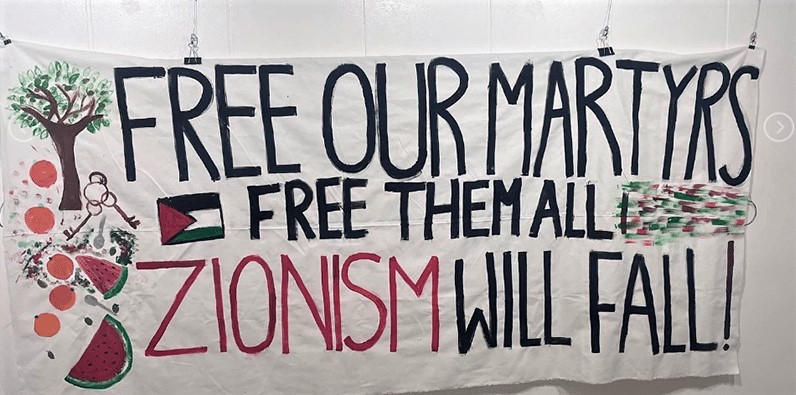
The Handala Coalition, a group of organizations advocating for Palestinians, sponsored the May 30 show at Detroit’s Swords Into Plowshares Peace Center and Gallery. Among the figures honored with artwork was Khader Adnan, 45, an imprisoned terrorist in Israel who died on May 2 following an 86-day hunger strike. He had spent eight years in prison for terror-related offenses, having been arrested by Israeli authorities 12 times.
In 2007, Adnan made clear his commitment to peace when he told his followers: “Who among you is the next suicide bomber? Who among you will carry the next explosive belt? Who among you will fire the next bullets? Who among you will have his own body parts blown all over?”
Following Adnan’s death, Palestinian Islamic Jihad launched three rockets into Israel.
Tlaib has continued to come under fire for antisemitic and anti-Israel rhetoric. Just a week-and-a-half before she attended the art show, Elisha Wiesel wrote an op-ed for The Hill condemning the congresswoman for her efforts to use the Elie Wiesel Genocide and Atrocities Prevention Act of 2018, named after his father, in a House resolution that called for “recognizing the ongoing nakba and Palestine refugees rights.”
Wiesel wrote: “To utilize my father’s name in such vile accusations is so far beyond the pale that I am staggered by the silence in response.”

